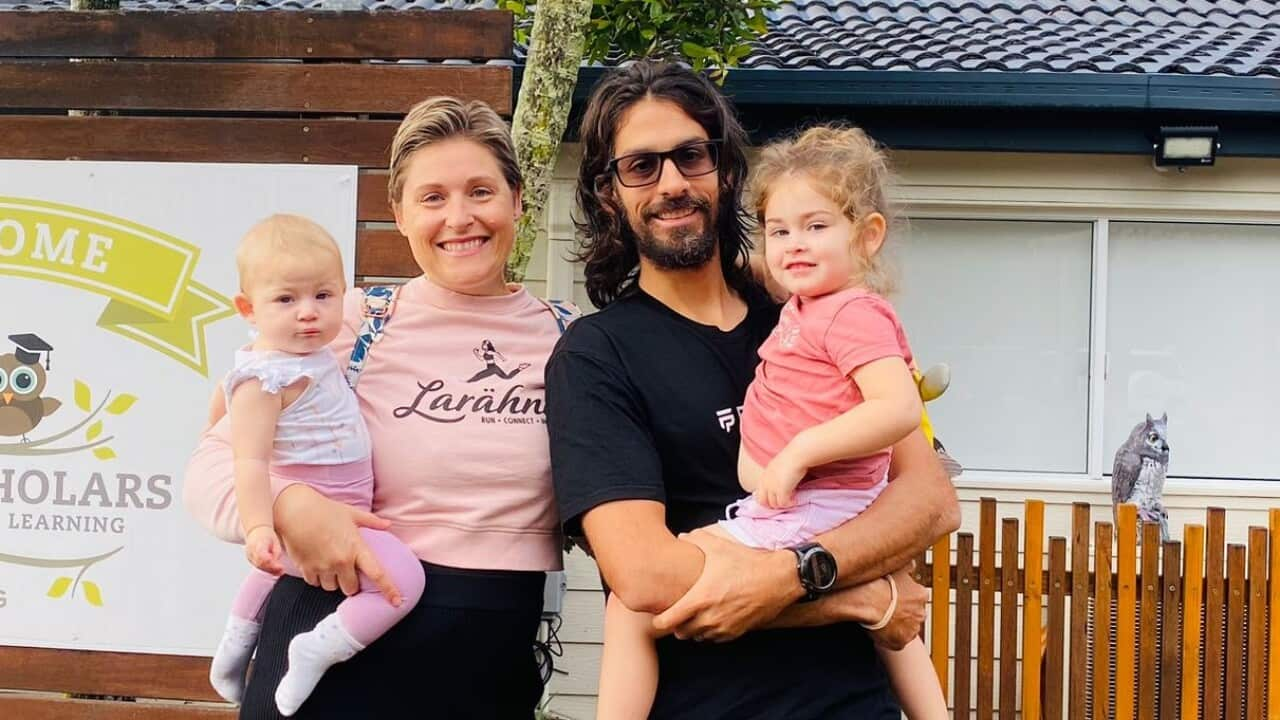Highlights:
- As with most Australian hospitals, the Royal Women's Hospital in Melbourne offers interpreter services at no cost to patients.
- The aim of the service is for patients to better understand both their immediate and longer-term treatment plans.
- The hospital's Spanish language interpreter, Angélica Oliva, also assists survivors and victims of sexual assault.
It's another day in the emergency room of the Royal Women's Hospital in Melbourne, and a pregnant woman has just arrived in pain with contractions.
To add to her worry is the fact that she only speaks Spanish and very little English.
This is when Angélica Oliva, a Chilean-born interpreter at the hospital, is called in.
“I am usually with the person until they apply the epidural — if they choose it — which is the injection that goes into their back to avoid the pain of contractions. I've never stayed beyond that, but I remain on the phone to clarify (later matters),” Ms Oliva told SBS Spanish.
Ms Oliva has more than 11 years of experience as a Spanish language interpreter at the hospital.
She explains that her work with patients often goes beyond translation. For example, in the case of a pregnant woman, once the baby is born, Ms Oliva also ensures the patient has a clear understanding of all the information she is given before being discharged.
A case in point is the instructions from a lactation specialist on best practice for breastfeeding.
The importance of clearly understanding our state of health
The Royal Women's Hospital in Melbourne treats an average of five Spanish-speaking patients a day, according to Ms Oliva, therefore, , the role of interpreters is essential in the treatment of patients with serious health problems or a chronic illness.
The idea of these services is to ensure that patients don't leave the hospital without knowing exactly what is happening to them and what plans they need to follow, so that they can take an active part in their treatment.Angelica Oliva
Often, when the person is not fluent in English, they return home without clear understanding of the instructions given to them by the health professionals in the hospital, “and when they return for the next appointment, there has been no progress in their recovery,” she said.
“Because a week can go by and the person may not know that they had to follow a particular treatment, or diet ... so it's very important that people make use of interpretation services.”
How to request an interpreter
People being cared for at the Royal Women's Hospital have access to an interpreter in person or by phone free of charge.

Interpreter services are available at most hospitals throughout Australia. Source: Getty / Getty Images
These services are available at most hospitals throughout Australia.
“It's a right and a service offered by the hospital,” Ms Oliva said, adding that the hospital also offered an Auslan service for those who were deaf or otherwise hearing impaired.
We, in the language department, are an important part of the day-to-day management of the hospital.Angélica Oliva
Sexual assault victims and survivors
But Ms Oliva's work at the hospital is only part of her job. She's also an interpreter of Spanish at the (CasaHouse), which is affiliated with the hospital and provides advice, support and protection to adult women and men who are victims and survivors of sexual assault, both in childhood and in adulthood.
Ms Oliva explains that every patient has access to the hospital's interpreter services and urges people to request them before or after arriving at the hospital.
It is also advisable to ask for an interpreter through GPs if patients have been referred to a hospital or in-house specialist.
“When you go to see your family doctor and (they) send (you) to a specialist, ask that they include in the letter that (you) speak Spanish as (your) first language, because sometimes the person has two or three appointments and we (at the hospital) don't know what is their first language," Ms Oliva said.
"So, if the language is specified, we [in the language department] know which patients are going to come (in)."

Melbourne's Royal Women's Hospital offers interpreters in more than 60 languages. Source: AFP / WILLIAM WEST/AFP via Getty Images
“If a patient came to the hospital and requested a Spanish interperter and for some reason I'm not here, or it's my day off, the patient has the right to tell the doctor or nurse that: 'they don't understand English and, want an interpreter, even if it's via phone'," Ms Oliva said.

Royal Women's Hospital interpreters are physically available from 9am to 4.30pm, Monday to Friday, but accessible via telephone 24 hours a day, seven days a week. Source: AFP / WILLIAM WEST/AFP via Getty Images
'The golden rule of confidentiality'
Ms Oliva said that one of the biggest challenges in her work was to disassociate herself from the emotions and reactions that patients experienced in relation to their state of health or diagnoses.
She also guarantees that all of her interactions are always confidential.
Our rule is that all of this is confidential and does not leave the hospital, except when it needs to be discussed with another member of the medical staff.Angélica Oliva
“I've been in the hospital for 11 years and I've never had a problem because I take [my work] very seriously. For me, it's an honour to (provide assistance to) people, (regardless) of race, culture, country, religious beliefs or sexual orientation,” she said.
Ms Oliva added that she has a lot of respect for the resilience she witnessed in patients who often arrive to the hospital alone and who have to deal with difficult issues such as abortion, endometriosis, the loss of a baby and even domestic violence.
For more information on the translation and interpretation service at the Royal Women's Hospital in Melbourne, visit or contact the language department on (03) 8345 3054.







